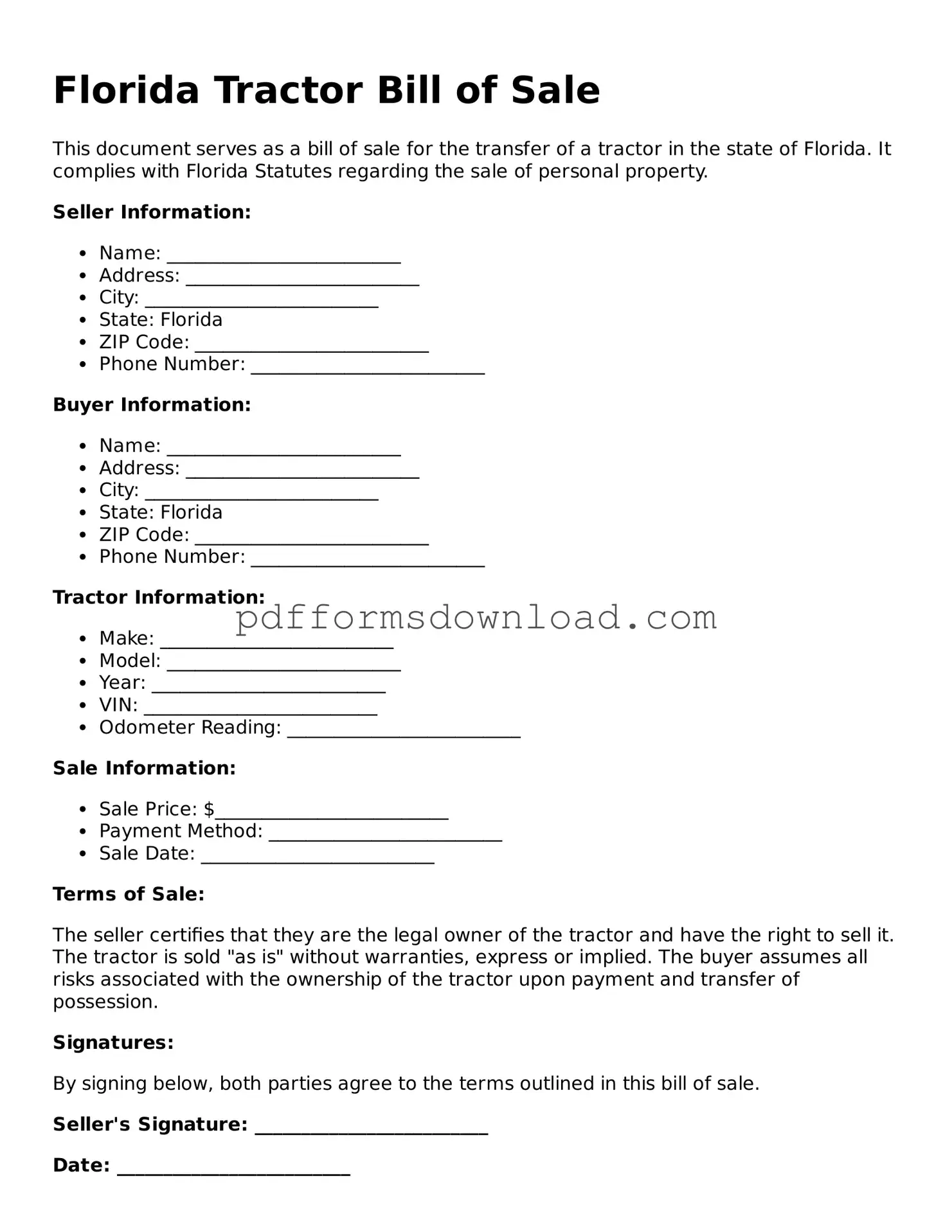What is a Florida Tractor Bill of Sale form?
The Florida Tractor Bill of Sale form is a legal document that records the transfer of ownership of a tractor from one party to another. This form serves as proof of the transaction, detailing essential information about the tractor, such as its make, model, year, and Vehicle Identification Number (VIN). Additionally, it includes the names and addresses of both the buyer and seller, along with the sale price. This document is important for both parties, as it protects their interests and can be used for registration or title transfer purposes.
Why is a Bill of Sale important when buying or selling a tractor in Florida?
A Bill of Sale is crucial for several reasons. Firstly, it provides legal protection for both the buyer and seller by documenting the terms of the sale. This can help prevent disputes regarding the transaction in the future. Secondly, it serves as proof of ownership, which is necessary for the buyer to register the tractor with the state. Lastly, having a Bill of Sale can simplify the process of title transfer, making it easier for both parties to complete the transaction legally and efficiently.
What information is required on the Florida Tractor Bill of Sale form?
The Florida Tractor Bill of Sale form requires specific information to be valid. This includes the full names and addresses of both the buyer and seller, the date of the sale, and the sale price. Additionally, details about the tractor must be included, such as the make, model, year, and VIN. It is also advisable to include any warranties or guarantees, as well as the condition of the tractor at the time of sale. Having all this information ensures clarity and helps protect both parties involved in the transaction.
Is it necessary to have the Bill of Sale notarized?
While notarization is not a strict requirement for a Bill of Sale in Florida, it is highly recommended. Having the document notarized adds an extra layer of authenticity and can help prevent disputes. A notary public verifies the identities of the parties involved and ensures that both have willingly signed the document. This can be particularly important in cases where the transaction amount is significant or if either party anticipates potential disagreements in the future.
Can I create my own Florida Tractor Bill of Sale form?
Yes, individuals can create their own Florida Tractor Bill of Sale form. However, it is essential to ensure that all required information is included and that the document complies with state laws. Templates are often available online, which can simplify the process. Regardless of whether a template is used or a custom form is created, it is crucial to keep a copy for personal records. This ensures that both parties have access to the terms of the sale should any issues arise later.

